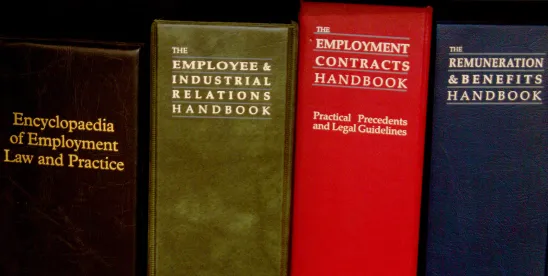On November 5, 2024, voters across the country weighed in on several state and local ballot measures impacting employment law, including increases to state minimum wage rates and paid sick leave mandates. Summarized below are the outcomes of the more prominent ballot measures decided by voters, including new obligations for employers in Alaska, Maine, Missouri, Nebraska and Oregon.
For a more in-depth discussion of these new laws, stay tuned for our annual year-end state law roundup which will cover these developments and other critical state and local employment law updates in further detail.
ALASKA TO RAISE MINIMUM WAGE, MANDATE PAID SICK LEAVE AND BAN MANDATORY EMPLOYER-SPONSORED MEETINGS
Alaska’s voters passed Ballot Measure 1, raising The Last Frontier’s state minimum wage, mandating paid sick leave and banning mandatory employer-sponsored a/k/a “captive audience” meetings. All of the provisions are slated to go into effect on July 1, 2025.
- Alaska’s hourly minimum wage will increase to $13.00/hour, with phased increases to the minimum wage until 2027 and thereafter adjusted annually for inflation.
- Alaska employees will accrue up to 56 hours of paid sick leave per year to be used for absences due to illness or injury as well as to address domestic violence, sexual assault or stalking. The paid sick leave provisions apply to employers with 15 or more employees.
- The ballot measure also restricts Alaska employers’ ability to mandate employee attendance at meetings discussing “political or religious” matters. As we’ve previously discussed (here and here), Alaska becomes the tenth state to prohibit “captive audience” meetings.
ARIZONA REJECTS “TIPPED MINIMUM WAGE”
- Arizona Proposition 138 failed. The initiative sought to amend the Arizona Constitution to allow an employer to pay tipped employees up to 25% per hour less than the state’s minimum wage.
CALIFORNIA YET TO CALL RESULTS ON INCREASE TO MINIMUM WAGE
- California Proposition 32 would increase the Golden State’s minimum wage, beginning January 1, 2025. As of this publication, Proposition 32 is on the path to defeat, but the election results have not been called yet.
MAINE (CITY OF PORTLAND) VOTES TO AMEND EMERGENCY MINIMUM WAGE PROVISION
- Voters in Portland, Maine approved changes to the city’s minimum wage ordinance, limiting the application of the emergency wage provision only to periods when the city has declared a state of emergency. Previously, nonremote workers in Portland received 1.5 times the state minimum wage whenever the State of Maine declared a state of emergency, even if employment conditions within the City of Portland were not impacted or altered.
MASSACHUSETTS REJECTS INCREASE TO MINIMUM WAGE FOR TIPPED WORKERS
- Question 5 failed, meaning Massachusetts will maintain its current tipped minimum wage. The measure would have gradually increased the minimum wage for tipped employees over the course of five years.
MISSOURI VOTES TO RAISE MINIMUM WAGE AND MANDATE PAID SICK LEAVE
Proposition A passed in Missouri, increasing the Show-Me State’s minimum wage and requiring paid sick leave.
- Effective January 1, 2025, Missouri will raise its minimum wage to $13.75/hour, with an increase to $15.00/hour in January 2026 and annual adjustments thereafter based on the Consumer Price Index.
- Effective May 1, 2025, employees will accrue a minimum of one hour of paid sick leave for every thirty hours worked. If the employer has 15 or more employees, employees are not entitled to use more than 56 hours of paid sick leave per year. Employers with 14 or fewer employees can cap employee use of paid sick leave at 40 hours per year.
NEBRASKA VOTES TO APPROVE PAID SICK TIME AND LEGALIZE MEDICAL MARIJUANA
- Under Initiative Measure 436, effective October 1, 2025, Nebraska employees of employers with 20 or more employees will have the ability to accrue and use paid sick time up to 56 hours per year. Employees of employers with fewer than 20 employees will accrue up to 40 hours of paid sick time per year.
- Nebraska voters also approved Initiative Measure 438, legalizing medical marijuana use. Although the initiative does not address whether Nebraska employers are required to accommodate the use of medical marijuana as a disability nor does it include any anti-discrimination provisions for marijuana use, Nebraska employers who perform drug testing of employees should stay alert for further developments related to medical marijuana use as it relates to drug-free workplaces.
OREGON TO REQUIRE LABOR PEACE AGREEMENTS FOR CANNABIS EMPLOYERS
- Oregon voters passed Measure 119, requiring cannabis business to have a labor peace agreement with a bona fide labor organization (in other words, a union) in order to obtain or renew a license to operate in Oregon. The agreement must provide, at a minimum, that the cannabis business agrees to remain neutral when a labor organization communicates with the employees of the cannabis business about collective bargaining rights. Measure 119 applies to applications or renewals for cannabis licenses and certifications that are received on or after December 5, 2024.




 />i
/>i

